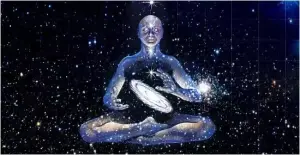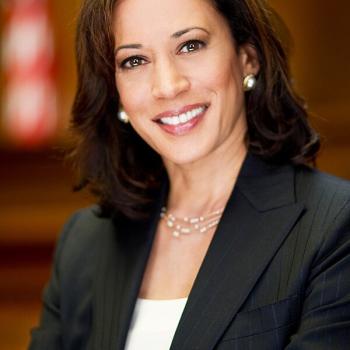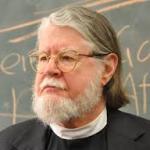Can “The Universe” Have Intentions?
Recently I have heard or read an almost avalanche of references to “the universe” (or “fate”) as if it were God. If you watch American television, movies, read (or listen to) novels, short stories, etc. You should know what I mean.
“The universe brought us together.” “The universe is punishing me.” “The universe planned this.” “The universe is telling me.” Substitute “fate” for “the universe” and the same kinds of statements can be heard and read in popular culture. Often. Very often.
I am struck by how, in the not-too-distant past, “God” would have OFTEN (I’m not saying always) been in place of “the universe” or “fate.” In the last two to three decades, however, God has been banished from discourse, except in specifically religious discourse, of course, but “the universe” has been/is being treated as if it has intentional agency.
I understand why this is happening/has happened. Makers of popular culture do not want to be labeled as “religious” or “Christian,” the universe forbid! And secularism has risen in popular culture. And makers of popular culture think mentioning God might offend some readers, viewers. And they don’t want to deal with the avalanche of emails, letters, phone calls protesting mention of God—as if God is necessarily only an idea of fanatical religious people or people of a specific religion.
But what strikes me is that characters in novels, movies, and television shows still can’t get away from SOME idea of a transcendent power that has intentions and person-like agency and meddles in their lives. (Of course, I know it is not really the characters or actors but the writers who cannot do this.)
But, in that case, WHY “the universe” and not “God?” In that case, those cases, don’t they mean pretty much the same thing? Can an atheist or totally secular person really think that the universe had person-like intentional agency? Or that fate has it? Aren’t the writers having their characters say something religious? To invest “the universe” or “fate” with person-like intentional agency amounts to saying there is a god? Even if that god is NOT the god of any particular religion? Saying “God brought us together” does not have to affirm or assume any particular religion. So why this aversion to god-talk in popular media and culture?
I suspect that people are, on this point, anyway, just being stupid. Or duped. Or both.
I know. Someone will say here that “The universe brought us together” is just a figure of speech. But is it? Doesn’t it reveal an implicit belief in some person-like agency that transcends nature? It does.
My mind is captivated by this, especially recently. In the past few weeks, months, I have heard many examples of this on television, in movies, in books I listen to on Audible. (I listen to novels when I’m exercising, driving alone or with my wife long-distances, etc.) I have noticed and cringed numerous times when characters have said “The universe…” when speaking about some event that is surprising. They mean “This couldn’t have just happened by accident.”
I want to jump into the book or television program or movie and ask the character (or better, the writers!) “What are you saying? Do you really believe ‘the universe’ has person-like, intentional agency?” Or do you MEAN ‘God?’ If the latter, why don’t you say it (or have your character say it)? You obviously don’t mind offending some people.” I could rant on.
No, I don’t believe “The universe brought us together” is only a figure of speech. Or it is, but one that reveals some underlying belief in God.
Put bluntly, “the universe” cannot have person-like intentional agency. Unless, I suppose, the universe is believed to be person-like which, then, would make the universe God or a god. How is it less offensive to atheists or secularists to utter “the universe brought us together” than “God brought us together?” I’m offended by the prevalence of “the universe brought us together” when I KNOW it is an attempt to cleanse God out of culture which has the effect of marginalizing believers in God.
But, to me, “the universe brought us together” (and similar statements that express belief in the universe as having person-like intentional agency), is tantamount to saying “God brought us together” except the latter makes sense while the former does not. Unless “the universe” is a cipher for “God” but then why? Why use a cipher? Especially one that cannot really function?
*Note: If you choose to comment, make sure your comment is relatively brief (no more than 100 words), on topic, addressed to me, civil and respectful (not hostile or argumentative), and devoid of pictures or links.*


















